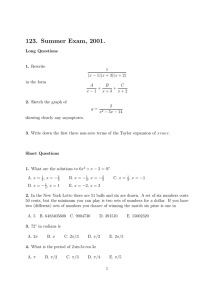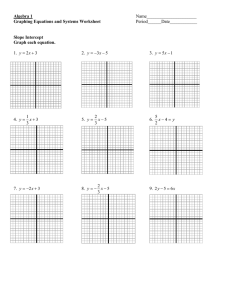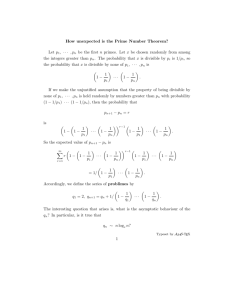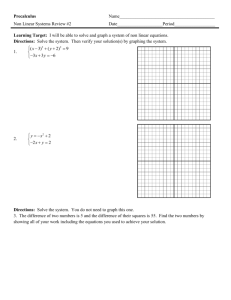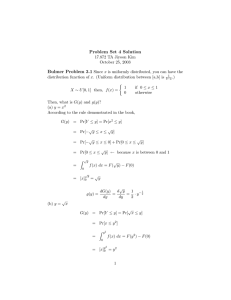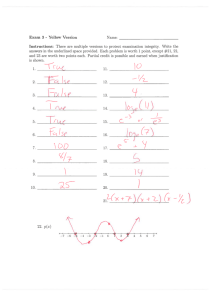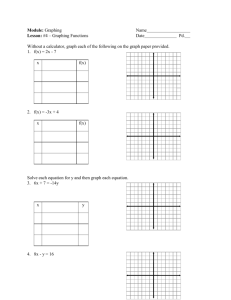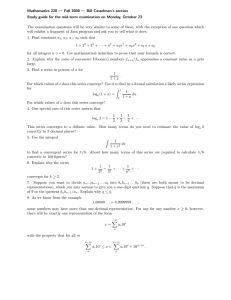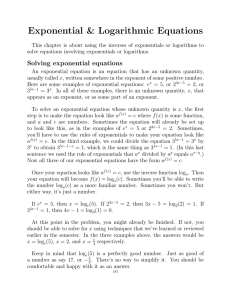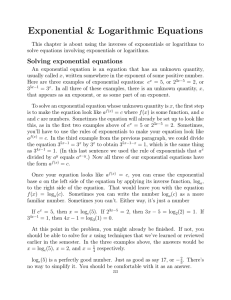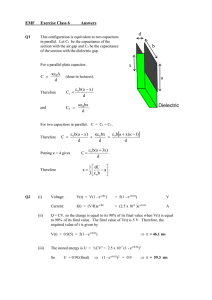x Solve for + log x − 3) = 4
advertisement
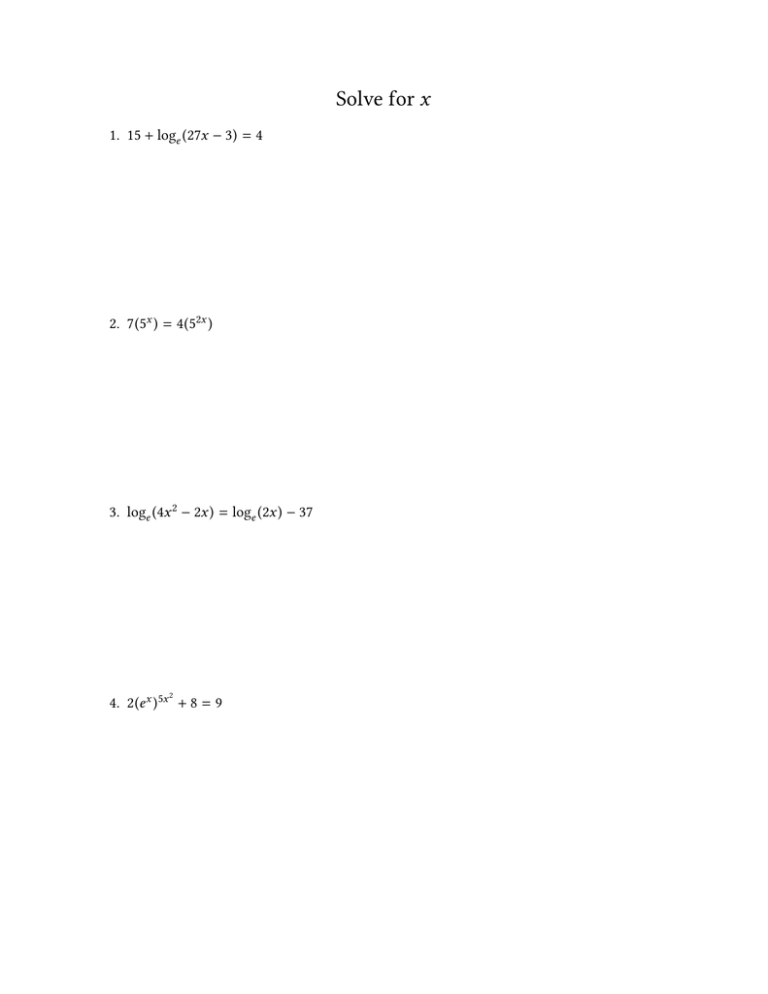
Solve for x 1. 15 + loge (27x − 3) = 4 2. 7(5x ) = 4(52x ) 3. loge (4x 2 − 2x ) = loge (2x ) − 37 4. 2(e x ) 5x + 8 = 9 2 Graphing rational functions r (x ) = 8(x − 3) −5(x + 1)(x 2 − x + 4) 1. What are the vertical asymptotes? 2. What are the x-intercepts 3. Is r (x ) positive or negative between pairs of points from 1 & 2? 4. What’s the leading term of 8(x − 3)? Of −5(x + 1)(x 2 − x + 4)? What’s the quotient of those leading terms? 5. What does the graph of r (x ) look like on the right and left? 6. Graph r (x ) Page 2 Graphing exponential and logarithmic functions 1. e x 2. loge (x ) 3. e x−3 4. −2 loge (x ) Page 3 Graphing piecewise defined functions x + 2 1. f (x ) = (x − 1) 2 |x + 3| 2. д(x ) = 4 5 − x 2x − 2 3. h(x ) = −1 −4x + 16 if x ∈ (−∞, 1) if x ∈ [1, ∞) if x ∈ (−∞, −3] if x ∈ (−3, 2] if x ∈ (2, ∞) if x ∈ (−∞, 0) if x ∈ [0, 3) if x ∈ [3, ∞) Page 4 Absolute value inequalities 1. Solve |2x + 3| < 6 2. Solve |π − 3x | < 2 Page 5 Linear equations in two and three variables 1. How many solutions does a linear equation in two variables have? (e.g. ax + by = r such that at least one of a and b is nonzero) How many solutions does a linear equation in three variables have? 2. There are three possibilities for the number of solutions of a system of linear equations. What are they? 3. When does a system of two linear equations in two variables have a unique solution? ax + by = r cx + dy = s 4. Is x = −1 and y = −5 a solution of the following system? −3x + y = 2 x +y = 6 Page 6 Solve for x and y 1. Solve 3x + 2y = 19 x +y = 8 2. Solve 4x + 3y = −2 8x − 2y = 12 Page 7
